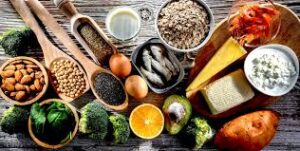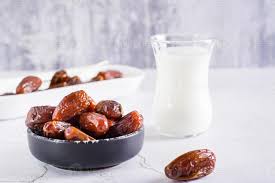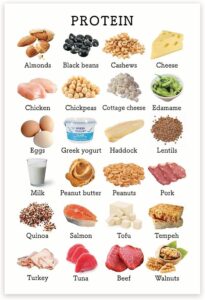Indian Pregnancy Diet Plan: Foods to Consume for a Healthy Baby
Although pregnancy is a wonderful experience, it also carries the burden of making sure the mother and the unborn child are getting enough nourishment. In addition to improving maternal health and facilitating a smooth delivery, a well-balanced diet throughout pregnancy is essential for fetal development. This guide will assist you in understanding what to eat for a healthy baby while maintaining the nutritional value and flavor of your meals if you’re searching for an Indian pregnancy diet plan. Why Is a Healthy Diet Important During Pregnancy?
A healthy diet is beneficial during pregnancy. Encourage the infant’s physical and mental development – Make the mother’s immune system stronger Preserve ideal weight gain** Avoid **issues such as high blood pressure and gestational diabetes Minimize morning weariness and sickness**
# Nurturing Essentials for a Healthy Pregnancy
Your Indian pregnancy diet plan should include the following essential nutrients:
1. Vitamin B9 (folic acid)
Folic acid is necessary to protect infants from neural tube problems. It also aids in healthy growth and the generation of red blood cells.
The following are the best India : beans, oranges, bananas, beetroot, almonds, fortified grains, spinach, and lentils.an sources:

2. IRON :
The best Indian sources of iron include beetroot, spinach, jaggery, pomegranate, dates, figs, and legumes like chana and rajma. Iron aids in the transportation of oxygen and guards against anemia.
3. Calcium : The best Indian sources of calcium are milk, paneer, curd, sesame seeds, ragi, and green leafy vegetables. Calcium is essential for bone growth and muscular function.
4. Protein: Dals, sprouts, soy chunks, paneer, tofu, eggs, salmon, and lean chicken are the best Indian sources of protein, which is essential for the development of a baby’s tissue and muscles.
5.Omega-3 Fatty Acids :
The best Indian sources of omega-3 fatty acids include flaxseeds, walnuts, chia seeds, fish (avoid high-mercury seafood like shark and king mackerel), and mustard seeds. Omega-3 aids in the development of the brain and eyes.

6. Fiber: Constipation, a major pregnancy problem, is avoided with fiber.
The best Indian sources include fresh fruits, vegetables, lentils, oats, and whole grains including wheat, jowar, and bajra.
7. Healthy Fats : Good fats aid in the development of the baby’s brain and the creation of energy. Best Indian Sources : Avocado, nuts, seeds, coconut, and ghee (in moderation).
Diet Plan for Indian Pregnancy: What to Eat?
1. First thing in the morning (6-7 AM)
>Warm water with honey and lemon (to help with digestion). >A glass of milk infused with turmeric.

2. 8–9 AM Breakfast
>Moong Dal Cheela accompanied by curd.
>Whole wheat toast with peanut butter – Oat porridge with banana and nuts – Vegetable upma or poha . >Idli accompanied by coconut chutney.
3. Snack in the middle of the morning (10:30–11 AM)
>Fresh fruit, such as pomegranates, oranges, or apples.
>A handful of dry fruits, or roasted makhanas.
>Hydration with coconut water.
4. 1-2 PM lunch
>A multigrain flour-based roti.
>A bowl of dal, such as toor, masoor, or moong dal.
>Vegetable sabzi (bottle gourd, beans, carrot, spinach, etc.).
>A bowl of buttermilk or curd.
>Ghee over brown rice5. Snack in the evening (4-5 PM) .
>Sprouts salad with chat masala and lemon.
>A handful of handmade chivda or nuts.
>Herbal tea containing tulsi and ginger.
Whole wheat biscuits
6. Supper from 8 to 9 PM
>Khichdi with curd and ghee.
>Soup with vegetables and chapati.
>Roti with paneer bhurji.
>Rice and daal with sabzi.
7. 10 p.m. Bedtime:
>A glass of warm milk with nutmeg (to promote relaxation). >A few dates and raisins that have been soaked.

# Foods Not to Eat While Pregnant
In addition to consuming nutritious foods, you should stay away from other things that could hurt the unborn child:
>Junk food (excessive in sugar, salt, and bad fats).
>Street food(food poisoning and infection risk).
>Dairy goods that have not been processed.
>Sea bass, swordfish, and king mackerel are examples of high-mercury fish. Raw papaya and pineapple might cause contractions.
>Too much caffeine (aim for no more than one cup of tea or coffee each day).

#Water is Vital
It’s critical to consume adequate water to help digestion and avoid dehydration. 8-10 glasses of water. should be consumed each day. Additionally, you can add:
> Fresh fruit juices (sugar-free).
> Buttermilk.
>Water from coconuts.
>Teas made from herbs.

#Healthy Pregnancy Tips-
>To avoid nausea and acidity, eat small, **frequent meals**.
>Engage in **pregnancy-safe activities** such as prenatal yoga or walking to get regular exercise.
>Aim for a minimum of **8 hours** of sleep each night.
>Take the prenatal vitamins that your doctor has suggested.
>Use relaxation and meditation techniques to manage stress.
Conclusions
Following to a balanced **Indian pregnancy diet plan** guarantees that you and your unborn child get the nutrients they need for normal growth and development. Consuming a range of fresh, home-cooked meals that are high in whole grains, fruits, veggies, and protein sources can have a significant impact. For a smooth and healthy pregnant journey, in addition to eating a good food, make sure you drink enough water, get enough sleep, and keep a happy outlook.
Are you a mother-to-be? Which Indian dishes are your favorites during pregnancy? Leave a comment below with your opinions! 😊